What is ProcessorProgression on Mac?

ProcessorProgression is an adware application created to infect macOS with the goal to generate revenue for its operators. The program is not malicious but most reputable anti-malware tools flag it as a potentially unwanted program. Hence, this adware may endanger the overall macOS security. Its installation may lead to the generation of a wave of intrusive adverts. In fact, by tricking people into clicking adverts, the app could monetize its presence on the system. However, the app could show promotions that link to vicious sites hosting fake services or malicious software.
Keep reading this article where you will find more about how ProcessorProgression adware works and how to prevent its negative impact on your Mac.

ProcessorProgression Summary
| Name | ProcessorProgression also known as Adware.MacOS.ProcessorProgression |
| Type | Adware, PUP |
| Short Description | A questionable application that hijacks browsers installed on macOS. Performs browser modifications without your knowledge. Generates annoying ads. |
| Symptoms | The homepage, new tab page and search engine in preferred web browser may be set to display a hoax search engine. Browser slowdowns may occur due to increased number of online ads. The program may start every time you start the affected Mac. |
| Distribution Method | Freeware Installations, Bundled Packages |
| Detection Tool |
See If Your System Has Been Affected by malware
Download
Malware Removal Tool
|
ProcessorProgression Adware – Why Is This App Installed on My Mac?
The methods that ProcessorProgression adware may use to infect macOS could all be designed to secretly run its installation. A click on a fake software update prompt, for example, may add this software to your Mac. The name of the legitimate Adobe Flash Player is among the most abused brand names when it comes to the spread of PUPs for Mac.
Pop-ups may be generated by various sites that prompt the installation of update due to out of date Flash Player. If you followed the instructions given by one such page and downloaded the offered update, you probably noticed ProcessorProgression adware on your Mac afterwards.
A redirect to a webpage like the one shown below may be the reason why you see ProcessorProgression adware on your Mac:
ProcessorProgression Adware – What Does It Do?
ProcessorProgression adware on Mac changes system settings by which it lowers the overall macOS security. This potentially unwanted application may be set to run commands that enable it to obtain access to installed web browsers. Once this happens, it can cause impact over some of the main browsing preferences like the default search engine, new tab page and homepage.
With or without your consent, you may identify that your browser forces you to use the services of a browser hijacker that, in turn, redirects all searches to Yahoo Search.
Additional changes of browser settings could enable this adware to display various advertisements. Unwanted browser extensions may be added to target browsers and then started to support adware’s activities.
Adware programs operate with the sole purpose to monetize their access to computer systems. However, these apps could display shady ads that link to unreliable sources along with the regular ads you see online. Some of the adverts may open corrupted websites that trigger malicious scripts developed to infect systems with harmful software. Sites promoted by adware like ProcessorProgression may host online scams, rogue applications, and even malware.
All those apps belong to the AdLoad family of threats for Mac. They have been reported as dangerous for macOS and that’s why security experts recommend their removal.

How to Remove ProcessorProgression Mac Adware
To eliminate ProcessorProgression along with all the entries it has created on your Mac system, you should complete several removal steps. Following their precise order shown below will guarantee you the full removal of any files installed by undesired programs. At the end of the process, your macOS security will be improved as well.
Before you begin, note that the manual removal might be quite a complicated process. It requires advanced technical skills. If you don’t feel comfortable with the manual steps, navigate to the automatic part of the guide.
Steps to Prepare Before Removal:
Before starting to follow the steps below, be advised that you should first do the following preparations:
- Backup your files in case the worst happens.
- Make sure to have a device with these instructions on standy.
- Arm yourself with patience.
- 1. Scan for Mac Malware
- 2. Uninstall Risky Apps
- 3. Clean Your Browsers
Step 1: Scan for and remove ProcessorProgression files from your Mac
When you are facing problems on your Mac as a result of unwanted scripts and programs such as ProcessorProgression, the recommended way of eliminating the threat is by using an anti-malware program. SpyHunter for Mac offers advanced security features along with other modules that will improve your Mac’s security and protect it in the future.
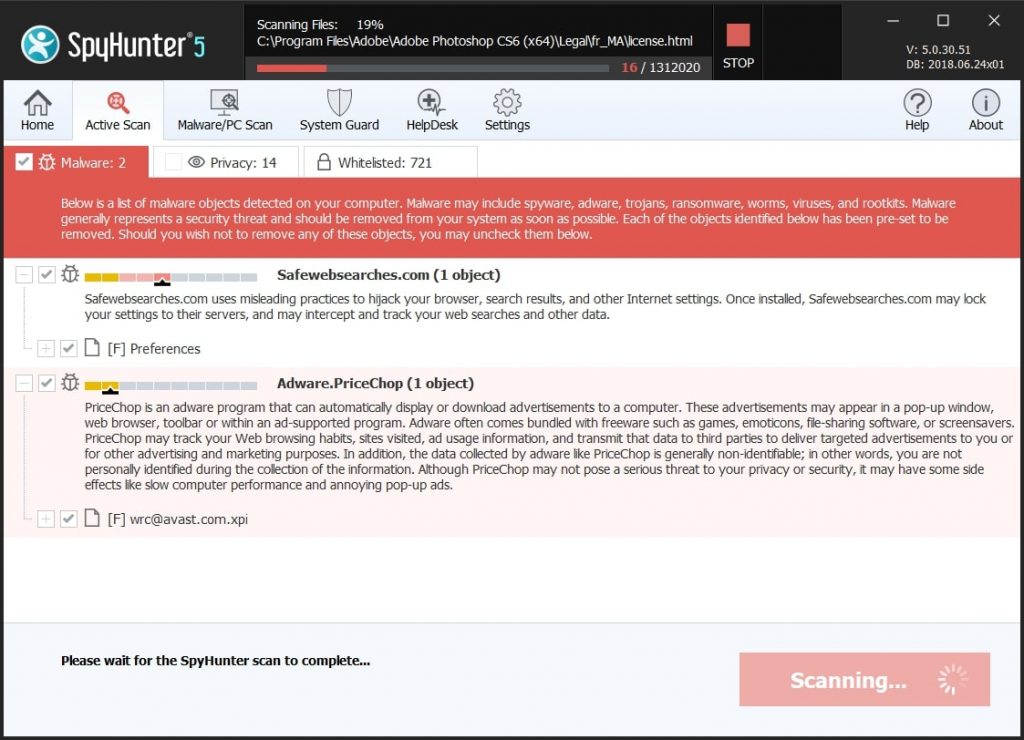
Quick and Easy Mac Malware Video Removal Guide
Bonus Step: How to Make Your Mac Run Faster?
Mac machines maintain probably the fastest operating system out there. Still, Macs do become slow and sluggish sometimes. The video guide below examines all of the possible problems that may lead to your Mac being slower than usual as well as all of the steps that can help you to speed up your Mac.
Step 2: Uninstall ProcessorProgression and remove related files and objects
1. Hit the ⇧+⌘+U keys to open Utilities. Another way is to click on “Go” and then click “Utilities”, like the image below shows:
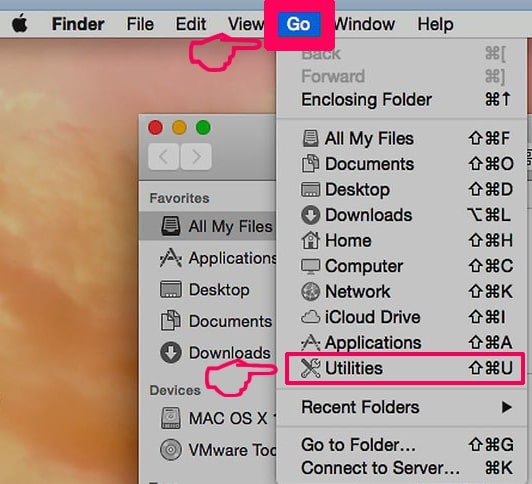
2. Find Activity Monitor and double-click it:
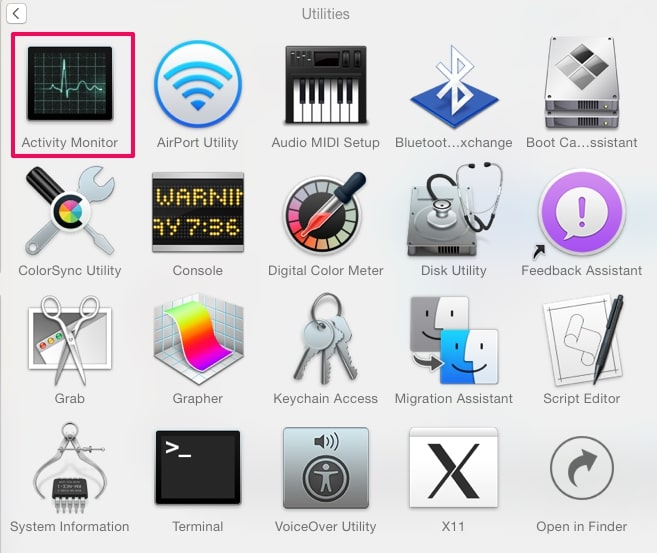
3. In the Activity Monitor look for any suspicious processes, belonging or related to ProcessorProgression:
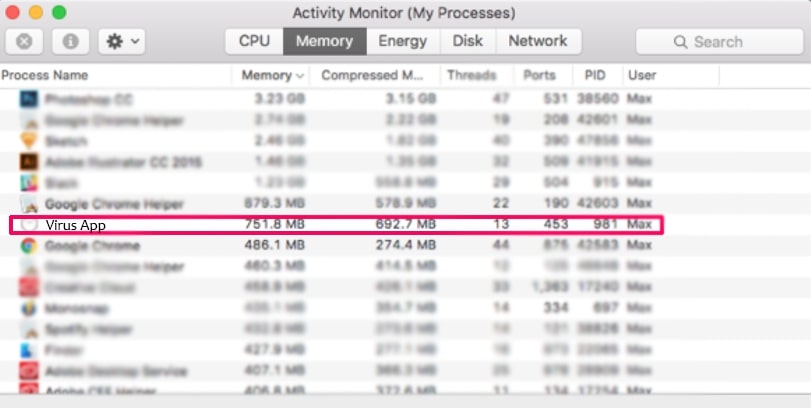
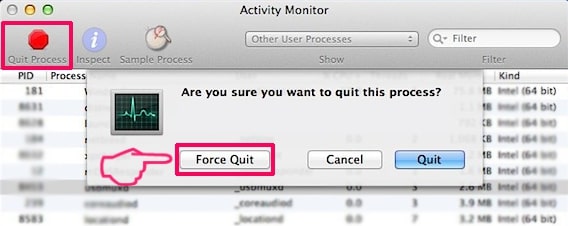
4. Click on the "Go" button again, but this time select Applications. Another way is with the ⇧+⌘+A buttons.
5. In the Applications menu, look for any suspicious app or an app with a name, similar or identical to ProcessorProgression. If you find it, right-click on the app and select “Move to Trash”.
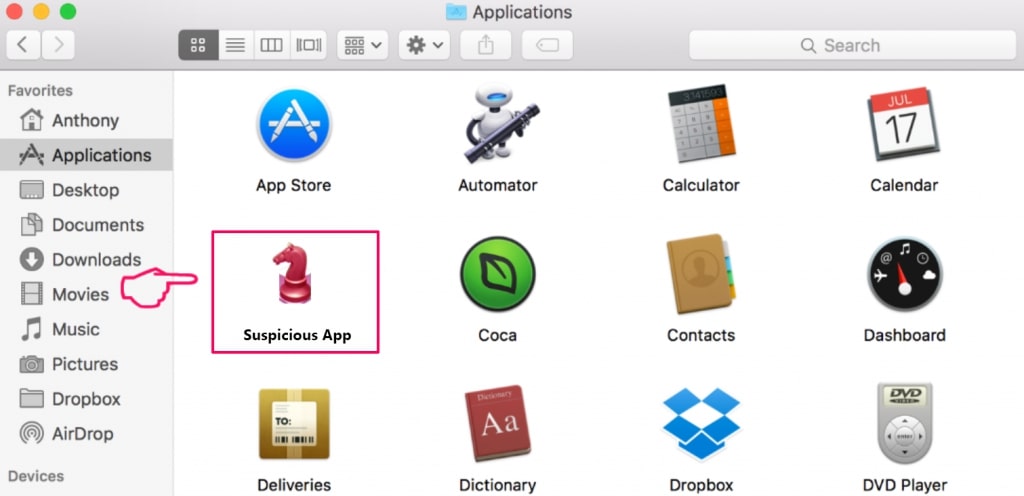
6. Select Accounts, after which click on the Login Items preference. Your Mac will then show you a list of items that start automatically when you log in. Look for any suspicious apps identical or similar to ProcessorProgression. Check the app you want to stop from running automatically and then select on the Minus (“-“) icon to hide it.
7. Remove any leftover files that might be related to this threat manually by following the sub-steps below:
- Go to Finder.
- In the search bar type the name of the app that you want to remove.
- Above the search bar change the two drop down menus to “System Files” and “Are Included” so that you can see all of the files associated with the application you want to remove. Bear in mind that some of the files may not be related to the app so be very careful which files you delete.
- If all of the files are related, hold the ⌘+A buttons to select them and then drive them to “Trash”.
In case you cannot remove ProcessorProgression via Step 1 above:
In case you cannot find the virus files and objects in your Applications or other places we have shown above, you can manually look for them in the Libraries of your Mac. But before doing this, please read the disclaimer below:
1. Click on "Go" and Then "Go to Folder" as shown underneath:
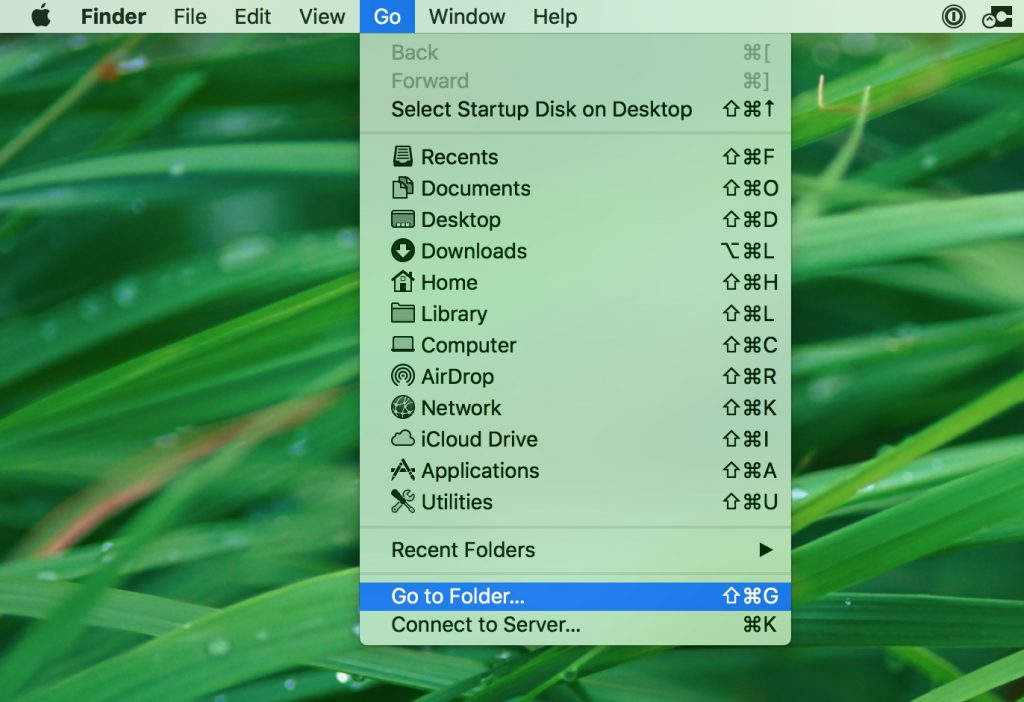
2. Type in "/Library/LauchAgents/" and click Ok:

3. Delete all of the virus files that have similar or the same name as ProcessorProgression. If you believe there is no such file, do not delete anything.
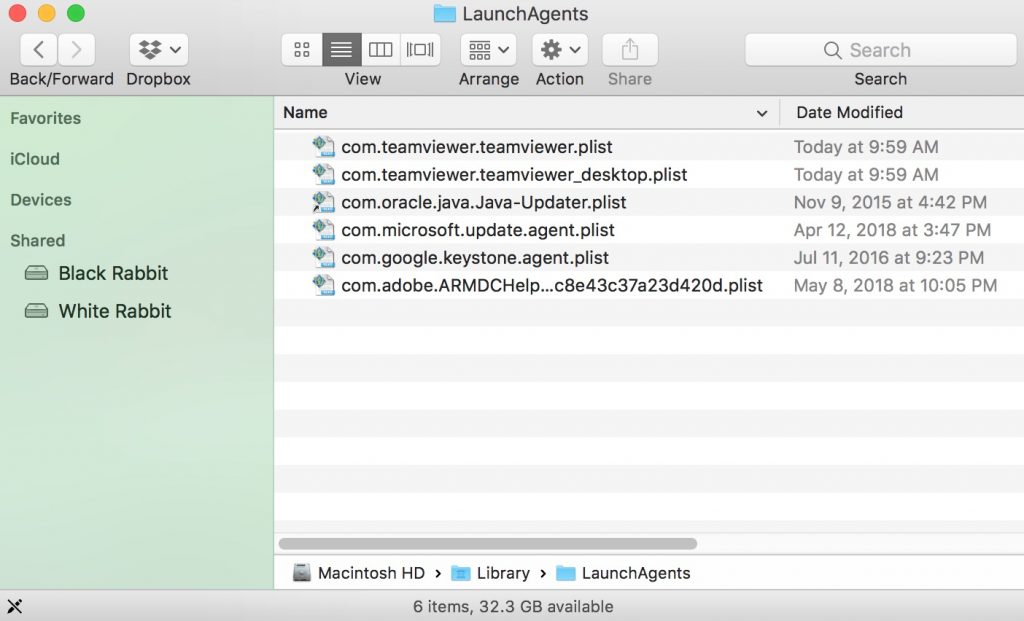
You can repeat the same procedure with the following other Library directories:
→ ~/Library/LaunchAgents
/Library/LaunchDaemons
Tip: ~ is there on purpose, because it leads to more LaunchAgents.
Step 3: Remove ProcessorProgression – related extensions from Safari / Chrome / Firefox
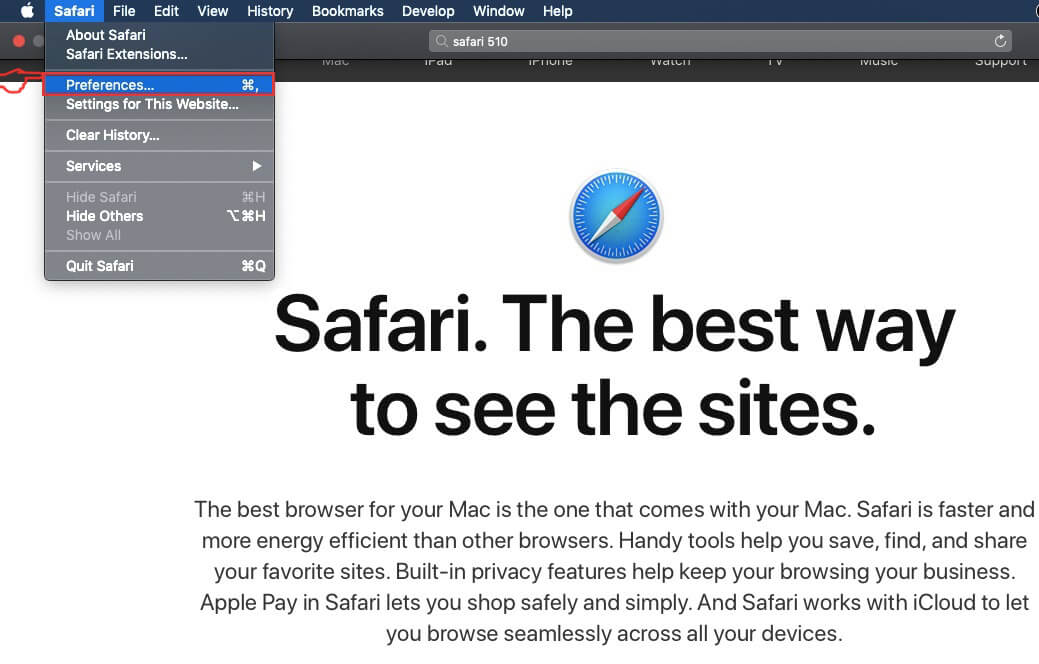

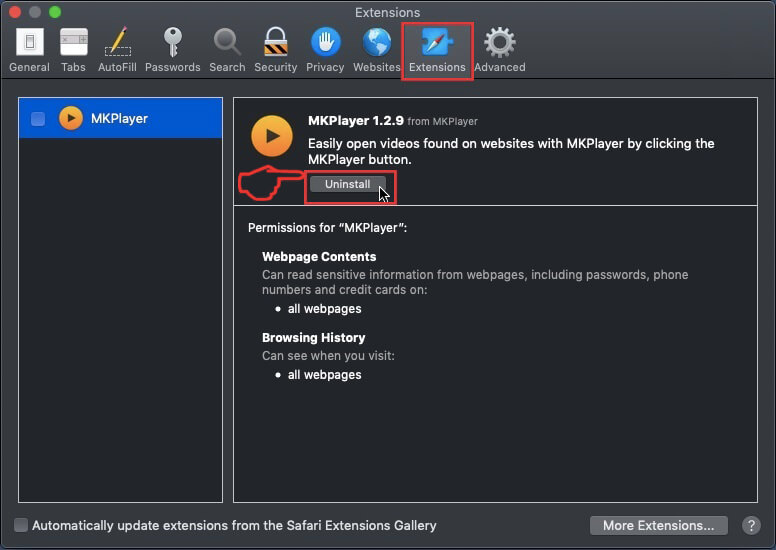

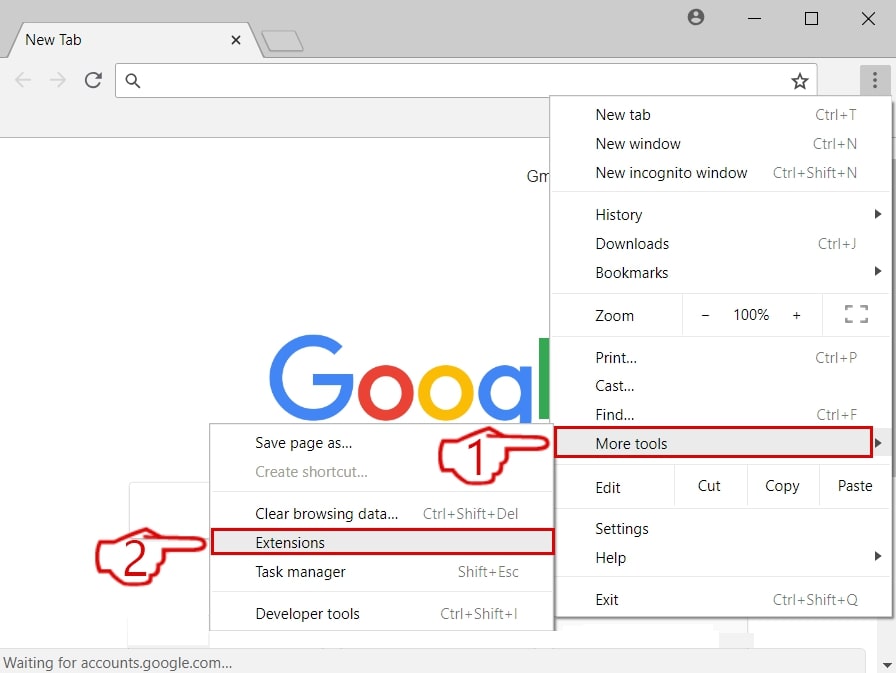
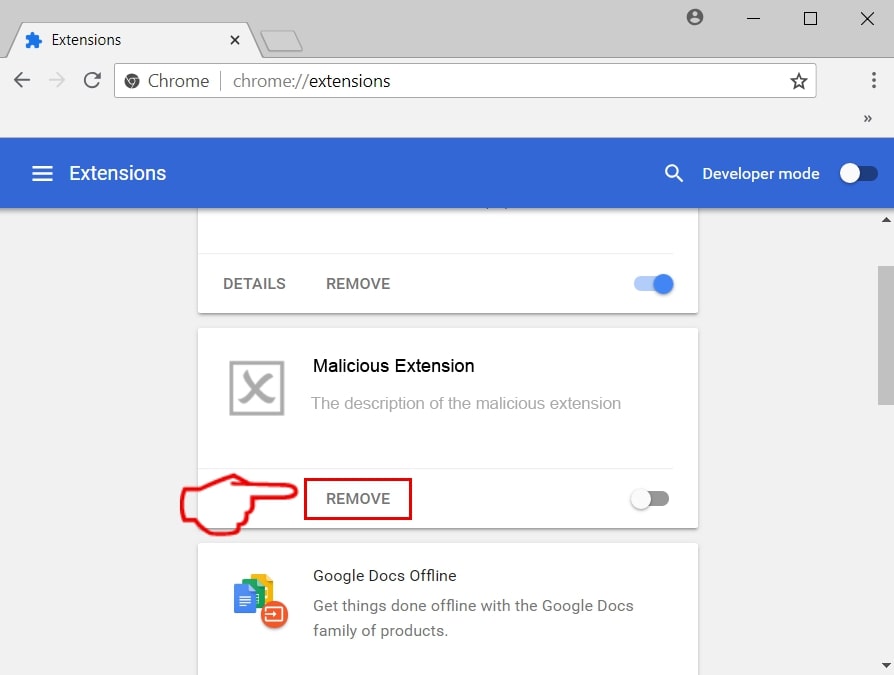
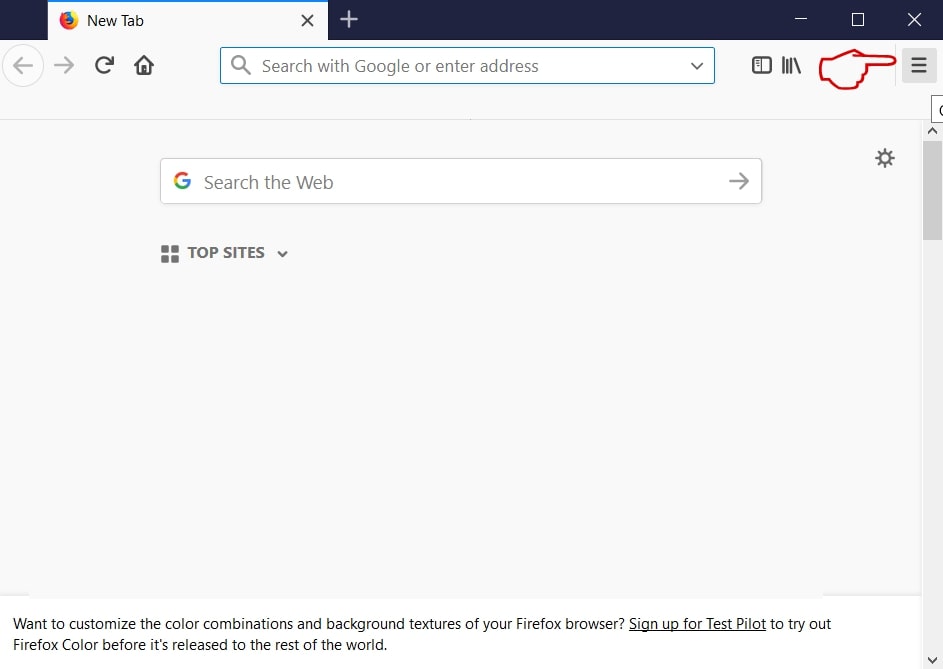
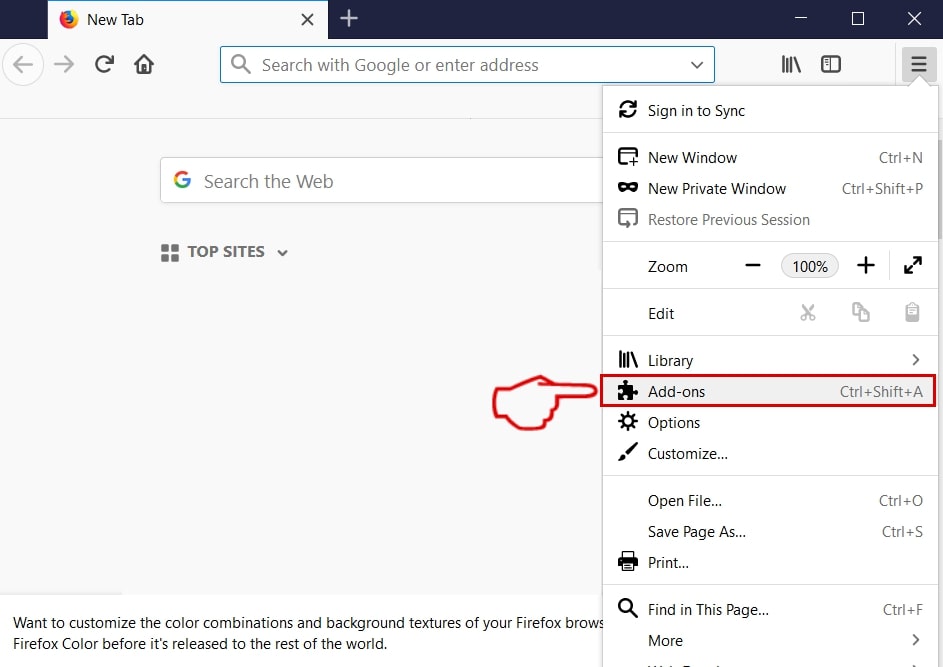
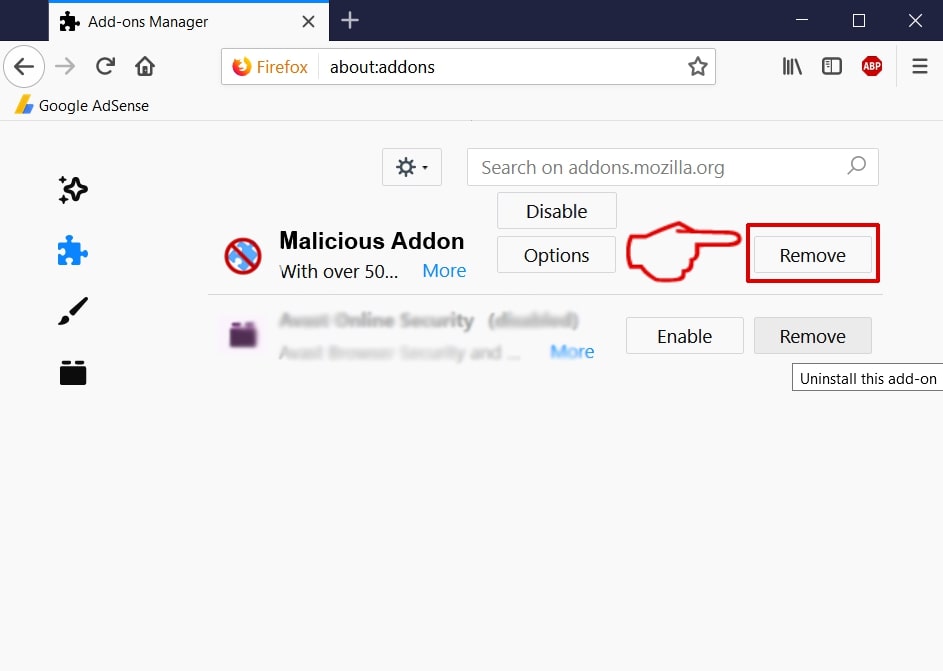
ProcessorProgression-FAQ
What is ProcessorProgression on your Mac?
The ProcessorProgression threat is probably a potentially unwanted app. There is also a chance it could be related to Mac malware. If so, such apps tend to slow your Mac down significantly and display advertisements. They could also use cookies and other trackers to obtain browsing information from the installed web browsers on your Mac.
Can Macs Get Viruses?
Yes. As much as any other device, Apple computers do get malware. Apple devices may not be a frequent target by malware authors, but rest assured that almost all of the Apple devices can become infected with a threat.
What Types of Mac Threats Are There?
According to most malware researchers and cyber-security experts, the types of threats that can currently infect your Mac can be rogue antivirus programs, adware or hijackers (PUPs), Trojan horses, ransomware and crypto-miner malware.
What To Do If I Have a Mac Virus, Like ProcessorProgression?
Do not panic! You can easily get rid of most Mac threats by firstly isolating them and then removing them. One recommended way to do that is by using a reputable malware removal software that can take care of the removal automatically for you.
There are many Mac anti-malware apps out there that you can choose from. SpyHunter for Mac is one of the reccomended Mac anti-malware apps, that can scan for free and detect any viruses. This saves time for manual removal that you would otherwise have to do.
How to Secure My Data from ProcessorProgression?
With few simple actions. First and foremost, it is imperative that you follow these steps:
Step 1: Find a safe computer and connect it to another network, not the one that your Mac was infected in.
Step 2: Change all of your passwords, starting from your e-mail passwords.
Step 3: Enable two-factor authentication for protection of your important accounts.
Step 4: Call your bank to change your credit card details (secret code, etc.) if you have saved your credit card for online shopping or have done online activiites with your card.
Step 5: Make sure to call your ISP (Internet provider or carrier) and ask them to change your IP address.
Step 6: Change your Wi-Fi password.
Step 7: (Optional): Make sure to scan all of the devices connected to your network for viruses and repeat these steps for them if they are affected.
Step 8: Install anti-malware software with real-time protection on every device you have.
Step 9: Try not to download software from sites you know nothing about and stay away from low-reputation websites in general.
If you follow these reccomendations, your network and Apple devices will become significantly more safe against any threats or information invasive software and be virus free and protected in the future too.
More tips you can find on our MacOS Virus section, where you can also ask any questions and comment about your Mac problems.
About the ProcessorProgression Research
The content we publish on SensorsTechForum.com, this ProcessorProgression how-to removal guide included, is the outcome of extensive research, hard work and our team’s devotion to help you remove the specific macOS issue.
How did we conduct the research on ProcessorProgression?
Please note that our research is based on an independent investigation. We are in contact with independent security researchers, thanks to which we receive daily updates on the latest malware definitions, including the various types of Mac threats, especially adware and potentially unwanted apps (PUAs).
Furthermore, the research behind the ProcessorProgression threat is backed with VirusTotal.
To better understand the threat posed by Mac malware, please refer to the following articles which provide knowledgeable details.



